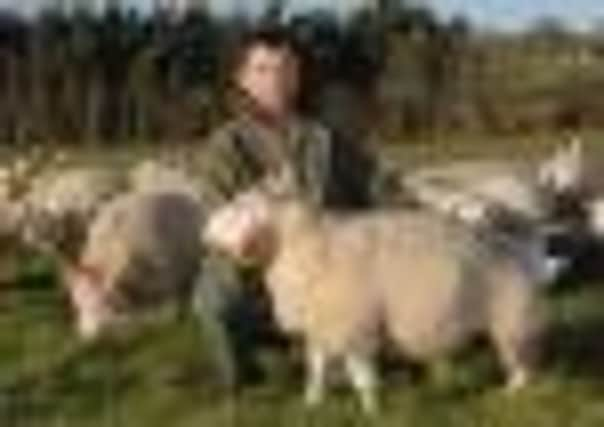Belgium demand sees plea for British Beltex


Irish-owned meat processor Dunbia, which has two English abattoirs in Lancashire and a good network of buyers in the north of England, is offering extra for lamb from Beltex sires, because of demand from Belgium.
The deal, which started on Monday, is particularly interesting because it comes on top of growing supermarket interest in traditional beef breeds and suggests there could be a market for more differentiation in lamb too.
Advertisement
Hide AdAdvertisement
Hide AdThe Beltex Sheep Society and Dunbia Lamb Export Scheme requires lambs sired by a registered Beltex ram and finished for 15-21kg deadweight. Dunbia already pays a bonus over the going rates of 10p/kg for lambs grading U2 and U3L and 20p/kg for those within the E2 and E3L specifications on the standard European carcase grading system. These are specifications which could have been written for Beltex carcases and qualifying lambs under the scheme will get another 10p a kilo on top, to meet a quota of 1,200 a week required for Belgium.
The extra-meaty Beltex was developed in Belgium, from the Dutch Texel, but the Belgian lamb industry is based largely on smallholdings and comes nowhere near meeting the country’s demand.
The first Beltexes were imported to the UK in 1990 and enthusiasts have developed a stock they believe could out-perform Texels and Suffolks for siring best butchers’ lambs. The breed society recently announced the launch of a performance-recording database. David Findlay, who was involved in developing the system, produces pedigree Beltex breeding stock and Beltex-cross lambs for the butcher on his farm at Coverham, near Leyburn.
He said this week: “There have been various efforts at marketing lamb on the basis of where it comes from, or what grazing it has had, but the interesting thing about this for me is that it is the first time somebody has been specific about wanting a particular breed for conformation. I obviously hope we will see more of it and I think we might, what with Morrisons, Waitrose and M&S, already recognising a growing awareness of the importance of breed in beef.”
Advertisement
Hide AdAdvertisement
Hide AdDunbia’s lamb procurement manager, Glynne Jones, said: “We are pleased to launch this new collaboration with the Beltex Sheep Society which will provide an opportunity for a year round supply of up to 1,200 Beltex-cross lambs per week, sourced via a network of field officers and collection centres throughout England, Scotland and Wales, for processing at our Preston plant.”
Beltex Sheep Society chairman Maimie Paterson said: “We are confident that Dunbia’s attractive offer will not only achieve a positive response from farmers already producing Beltex-cross lambs, but also encourage other commercial producers to make a purchase of a registered Beltex ram.”
Dunbia’s export sales manager Michael Dundon said: “We believe there is potential to build in Belgium and to commence penetrating the French market.”
Texel research project
BELTEX rivals the British Texel Sheep Society this week announced a £100,000 research and development fund “to cement its position as the UK’s leading terminal breed and develop its future aspirations”.
Advertisement
Hide AdAdvertisement
Hide AdProjects will be recommended to the society board by a Breed Development Committee chaired by Aubrey Andrews.
He said: “The society has always been progressive and this decision should add confidence to the entire membership as we make the most of new opportunities.”